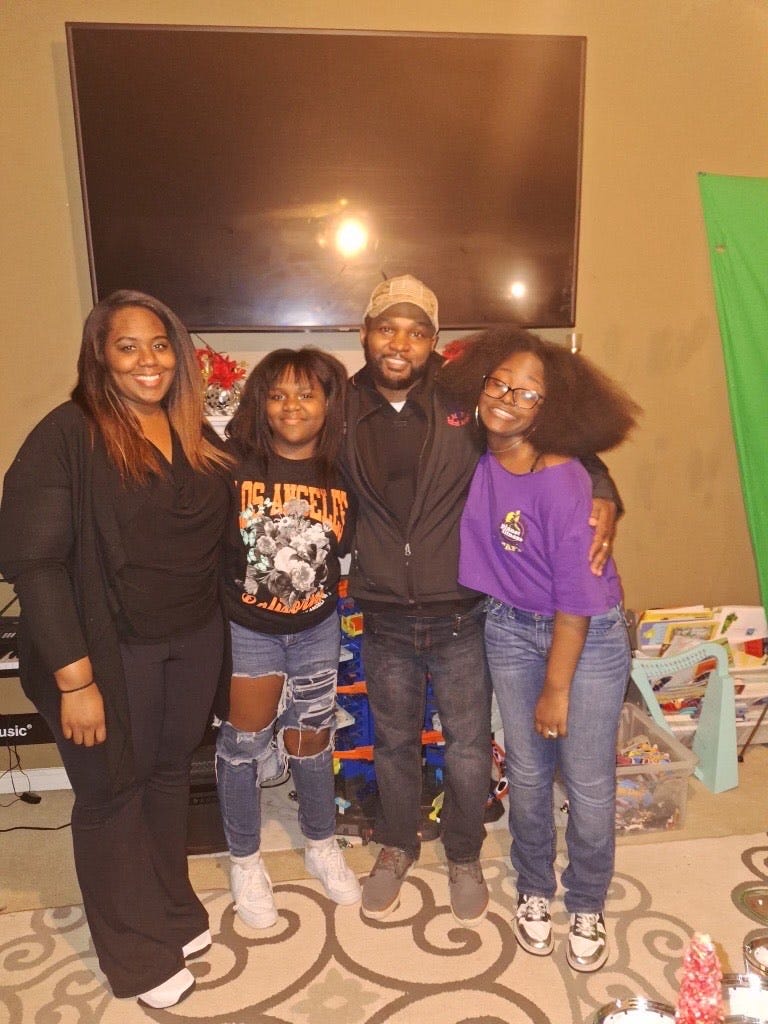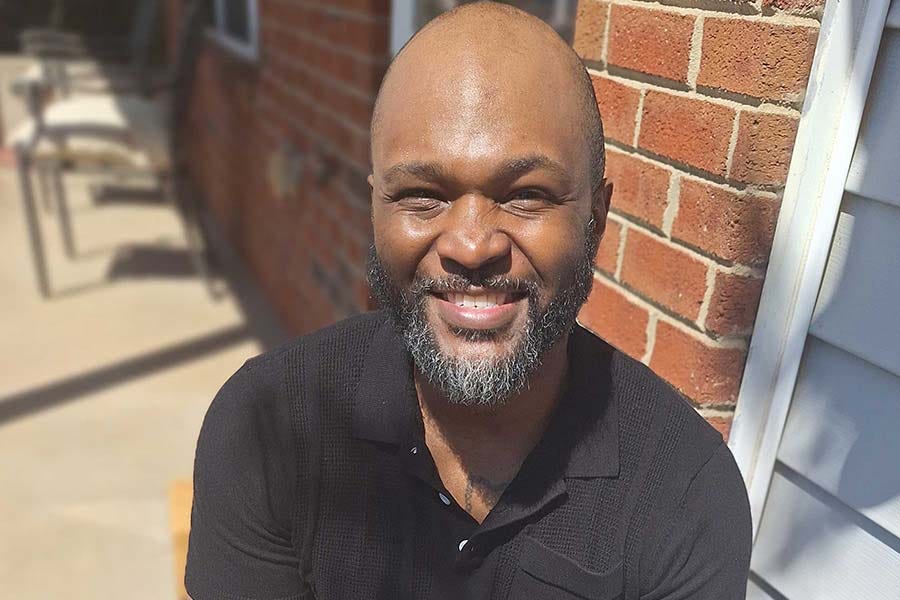Social Impact Tech: Antonio Sadler Of ViaPath Technologies On How Their Technology Will Make an Important Positive Impact
An Interview with Jilea Hemmings
Keep it human — Tech can’t replace people, but it can amplify opportunity, connection, and productivity. It complements us.
In recent years, Big Tech has gotten a bad rep. But of course many tech companies are doing important work making monumental positive changes to society, health, and the environment. To highlight these, we started a new interview series about “Technology Making An Important Positive Social Impact”. We are interviewing leaders of tech companies who are creating or have created a tech product that is helping to make a positive change in people’s lives or the environment. As a part of this series, I had the pleasure of interviewing Antonio Sadler, ViaPath Technologies.
Antonio Sadler is a Product Manager at ViaPath Technologies and a passionate advocate for second chances. A returning citizen who served 10 years in SCDC, Antonio has since transformed his life through faith, education, and technology. He now leads innovative projects that empower incarcerated individuals and their families, using tech as a vehicle for dignity, connection, and opportunity.
Thank you so much for joining us in this interview series. Before diving in, our readers would love to learn more about you. Can you tell us about your childhood backstory and how you grew up?
I grew up in a loving home with a family that cared. But none of us were perfect, not even close. My father, once heavy in the streets, radically changed his life when I was 15 and turned to Christ, spending the next 25 years repairing the damage his example had done. That shift reshaped how I saw myself, but by then, I had already started down the dark path. With my young adulthood in and out of trouble, I eventually served a decade in prison. But within that struggle, I found clarity, discipline, and purpose. With two weeks of solitary confinement, I began to believe I could build something meaningful for us.
Can you share the most interesting story that happened to you since you began your career?
One day, I got a call from the former prison warden who had once overseen my facility — someone I never imagined I’d hear from again. She had transitioned into the tech world and recommended me for a Second Chance opportunity at ViaPath. I was stunned. Someone in a position of authority remembered me and believed in my growth — it rocked me. It was more than a job referral; it was confirmation that the work behind those walls mattered.
None of us can achieve success without some help along the way. Is there a person you are grateful to who helped get you to where you are? Can you share a story about that?
My wife. While I was locked up, she held down our family, raised our daughters, and never let me forget that I was still loved, still needed, and still a father. I’ll never forget the day she brought our girls to visit and said, “We’re not just waiting for you to come home, we’re preparing for who you’ll be when you get here.” That moment flipped a switch in me. Her unwavering love lit a fire that no cell bars could quench.
Can you please give us your favorite “Life Lesson Quote”? Can you share how that was relevant to you in your life?
At the inmate entrance to a courthouse I went to, there was a small sign at eye level that you would see on the way to being sentenced that read “Life is tough. It’s tougher when you’re stupid.” Some cold, truthful wit that echoes in my head whenever my fingers get dangerously close to making a “stupid button” decision.
You are a successful business leader. Which three-character traits do you think were most instrumental to your success? Can you please share a story or example for each?
Resilience — In prison, every day was a test of mental stamina. In tech, I apply that same grit when problem-solving or iterating product features under pressure.
Empathy — Teaching GED classes inside taught me how to listen, not just speak. That’s helped me build user-first products.
Faith — I lean on God’s guidance daily, especially when leading with integrity in a space where many still judge your past.
To begin, what problems are you aiming to solve?
We aim to solve digital isolation and prepare incarcerated individuals for real reintegration. Most incarcerated people have limited or no access to modern tools that help them grow or connect. We’re building solutions restoring dignity and fostering opportunity because incarceration should not equal disconnection. Also, I want to tackle adult illiteracy with AI. I read that up to 25% of the people incarcerated struggle to read and write. I met some inside, working on a GPT to teach them on our devices.
How do you think your technology can address this?
By offering secure, personalized digital platforms — tablets, AI tools, and educational content — we help users stay in touch with their families and stay engaged in personal development. These tools are bridges to healing, skill-building, and a society they’ll eventually rejoin. When families are part of that bridge, recidivism drops, and futures rise. Also, they are powerful tools to provide education directly to the incarcerated.
Can you tell us the backstory about what initially inspired you to feel passionate about this cause?
I lived the problem. For a decade, I saw how hard it was to stay connected to family and how few resources existed for real growth. I watched men with potential lose hope. I promised myself that if I ever got out, I’d build tools that helped people on the inside feel human again. Also, I want to develop habits that will keep me out of prison. I serve them best from the outside. Now I get to do that for a living. My first product idea that came to life was eCards, designed explicitly for the incarcerated on our tablets. Digital cards help to combat drug use.
How do you think this might change the world?
It already is. We’re changing how society sees people with records — not as liabilities but as human beings capable of redemption. With each connection reestablished, each skill learned, we’re shifting the entire narrative of criminal justice. Change a man’s abilities, and you change his trajectory. That ripple hits families, communities, and eventually policy. ECard’s combating the drug epidemic inside is self-explanatory (being that some drugs enter prisons and jails through mail).
Considering “Black Mirror” and the “Law of Unintended Consequences,” can you see any potential drawbacks of this technology that people should consider more deeply?
Absolutely — technology without accountability can become another form of control instead of liberation. Surveillance creep and data privacy are concerns we must constantly audit. Our challenge is using tech with ethics, ensuring it’s empowering, not just monitoring, the user. We build with trust in mind, and that means centering human dignity in every line of code. Also, I make with the human workforce in mind now. We are in a race NOT to be replaced, truthfully.

Based on your experience and success, can you please share “Five things you need to know to successfully create technology that can make a positive social impact”?
- Start with the people, not the product — Inside-out feedback loops are crucial. Incarcerated voices guide our product decisions. Know their pain points intimately.
- Empathy beats assumption — Don’t design for users. Design with them. Build for and from end-user perspectives.
- Keep it human — Tech can’t replace people, but it can amplify opportunity, connection, and productivity. It complements us.
- Measure what matters — It’s not just about downloads and revenue; it’s about changed lives.
- Lead with humility — The moment you stop listening, you stop solving.
If you could tell other young people, like you, one thing about why they should consider positively impacting our environment or society, what would you tell them?
Purpose will outlast paychecks. When you serve something bigger than yourself, your labor becomes a legacy. The world doesn’t need more tech bros — it needs tech builders who give a damn. You don’t have to be perfect to lead. You must care enough to show up and do the hard work.
Is there a person in the world or the US with whom you would like to have a private breakfast or lunch, and why? He or she might see this, especially if we tag them. 🙂
Yes, Jelly Roll. I want to talk and jam out with him. Also, celebrate our life changes together through a duet, a collaboration. I love music, and this is so inspiring. I would love to have it all on our tablets in prison for all to enjoy and experience.”
How can our readers further follow your work online?
You can follow me on LinkedIn @AntonioSadler, where I share updates on justice tech, second chance initiatives, and reentry resources. I am also an up-and-coming writer with some surprise literature projects being brewed, more soon. Keep an eye on ViaPath Technologies and the ViaPath Foundation, too — we’re just starting.
Thank you so much for joining us. This was very inspirational, and we wish you continued success in your important work.
About the Interviewer:
Jilea Hemmings is a staunch believer in the power of entrepreneurship. A successful career revamping Fortune 500 companies was not enough for her entrepreneurial spirit, so Jilea began focusing her passion in startups. She has successfully built 6 startups to date. Her passion for entrepreneurship continues to flourish with the development of Stretchy Hair Care, focusing on relieving the pain associated with detangling and styling natural black hair. For far too long, people with tender heads have suffered in pain. Until now.
Social Impact Tech: Antonio Sadler Of ViaPath Technologies On How Their Technology Will Make an… was originally published in Authority Magazine on Medium, where people are continuing the conversation by highlighting and responding to this story.
